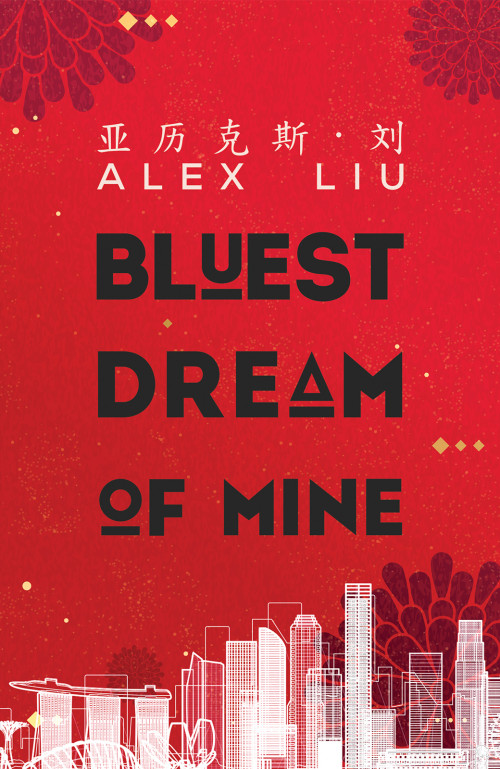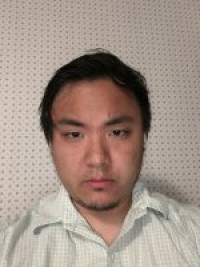
By: Alex Liu
Bluest Dream of Mine
Book Format: Choose an option
Free standard delivery on UK orders over £35
*Available directly from our distributors, click the Available On tab below

By: Alex Liu
Book Format: Choose an option
Free standard delivery on UK orders over £35
*Available directly from our distributors, click the Available On tab below

Alex Liu started his career in finance after graduating from Harvard, working at the hedge fund Citadel in Chicago. He went on to attend Columbia University’s program for aspiring doctors and did chemistry research at Tufts University. The transition from finance to science was necessary to tackle the challenges that Alex felt he needed to tackle, as he found in the physical sciences a grounding in reality that was lacking in the subjective world of finance.
good evening, Thank you for time and space to let me share some thoughts upon working back into the ideas of the novel just now. I wrote this through the course of a few years and I'd just would please like to give a few pointers to in reading after casting my own vote to say it is what it is supposed to be, just maybe I wrote it as a theory yet I was under many personal emotions more ephemeral (appasionatta translated literally in Mandarin means many emotions by the way for context), so to help "get through it," as a feeling I know I myself encountered when re-familiarizing myself with the ideas, I suggest some pointers to pick up speed: (1) religion: on eastern vs western values, we don't know sometimes, or we wouldn't use the term values, so the key struggle for the narrator through the text between lines is he finally decides death is not a release per eastern values and so not a judgment, and therefore the truth he seeks, the right way, is by definition his own, not a false dichotomy of truth vs. legal defensibility, and if people call him a religious fanatic for overuse of selfish truth seeking, he doesn't even care because he is not in fear of end of life judgement as a release and can trust what he doesn't understand, emotion truths, truth being what lets him move on, many of the wild sort of map-making or math "surjection" passages are him trying to move on by thought alone, but those efforts after years don't move anything, only after surmounting fear of death judgment (Peking opera judges good visualization even if life in North America) and letting go need of death as release, many years later for other reasons, but then it all mattered, every ounce of effort (2) philosophy (especially moral philosophy): with regard to axiom of choice, one can confuse oneself into a figment of one's own imagination with too much animal comparison of spirit guide, but assuming an adult faith, the real issue of falling between cracks is whether one believes one chooses and is the experience of that choice, so I think I'm going to look at the book as a reflection broadly of a lens into human experience, not just my own like attempt to make my a life make sense, and I'm going to say definitively "no," you not the experience of your choices, because otherwise choice is too powerful, and I just point at the border-line between going to school to be a doctor while very sick with mental illness where the chances of you becoming a doctor is very low to zero, and somehow like experiencing the travails of feeling like a doctor from choosing to go there where you may very well find the meaning of life of being a doctor there; so I think I make this philosophy point because solipsism (excessive living on one's own head) and mental breakdowns go together, but not necessarily mental illness, in fact it is illuminating that mental illness is a theory almost that you live until falsified, because otherwise as an eccentric math problem it is too hard for you to solve--you can check it's defined as longterm problems with relationships with others, so you live in a story bubble with them that is a prayer optimism longterm until falsified, then you make a new prayer, because otherwise if you try to return to conventional college networks to get active help like from a assisted job sociologically, it's too hard, you'll end up disliking the help, feel bossed around by someone who really cares for you, it's human nature still even if you are living with brain that focuses on the past for example: you'll see in the text, a reaching for the past, since the moment we treat brain with chemicals we admit it's a brain issue not just a mental state of view or relatability -- I think it should make people curious what kind of changes a wobbly brain or treated brain has on a person's thinking who is otherwise determined by his education and background (3) East Asian Studies -- the general read on the East Asian Studies is that I'm not covering new ground since China's condition as a place with 1.4 billion people is sometimes you can ask them directly and it is deemed not warranted for excessive scrutiny especially if it's just anecdotal from one person's ideas, so you instead see that I take some of my education on world level history in Harvard college and try to ground myself in a pro-China pro-USA dialogue to add without subtracting ceteris paribus it's called in economics, that I'd summarize now with benefit of a few years as I'm reading Mao as Nasser, often called the Last Arab, though I don't mention the name Nasser in the text, and so Deng I'm reading as comparable to Yitzak Rabin, in both cases, I view them as trying to bring philanthropy as the ultimate goal of capitalism to China, where the key aspect is of course growth, if one jumps from capitalism to communism and it shrinks that isn't going to work anywhere, it is a practical not ideological consideration since de facto communism was already decided to be introduced in China before these leaders could say no or yes. In a Spring and Autumn Chinese Warring states reading, I'd be reading both Mao and Deng to be closest to the Wu state of Sun Tzu, comparable to Sun Quan and Dr. Sun Yat Sen, but you have to remember whether I'd be taken seriously as a historian given my level of depth of reading compared to anecdotal folk focus. But I'm not bad, on the whole I'd read the Wu-state to have led us into Ming Chinese revival (1368-1644CE) around Beijing now, a pro-world pro-trade state, but as an American, I'm just trying to explain I would not turn to fiction to judge a Chinese-American like me on whether you listen to me and can trust I'm not as they say feeding toxic weeds to poor trusting Western cows, because it's not someone else's human struggles but my own human struggles I present in fictional stage, mostly a stage because I've already worked out the pauses in between so that it's mostly a defensible monologue, and thus a sound theory; the Ming Chinese are closest in my view to the Qin State (Great Wall) so see it's not all Buddhism of the strongest Great Wall coming back but thy kingdom come too, which is why Christianity so popular in China and if I didn't know they genuinely wanted the future to be greater than now, maybe I'd say it's only regional power Christianity, but no they believe, I understand now, and I'm just sort of an intellectual interrupted with some life changing events in mental but I still see clearly enough to hope the best in the preparations for the best and worst among nations so highest skyscrapers and foreign ministries, come together -- the emotions of songs in the past were just prophecies, the work will be done now today and tomorrow. thanks for your time, Alex
We use cookies on this site to enhance your user experience and for marketing purposes.
By clicking any link on this page you are giving your consent for us to set cookies